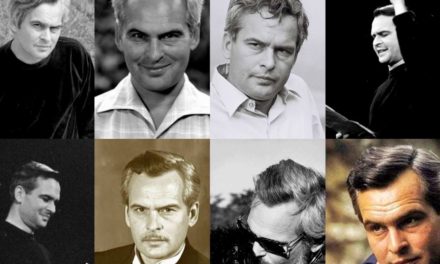The historian Zsuzsanna Borvendég's series was originally published on the PestiSrácok website, but there are certainly those who missed it. But those who haven't read all the parts should also read it again. Knowing the whole picture, can we understand how we got here?
Network, background power, deep state: these are all terms that make scientific investigation impossible, as they can be swept off the table with a single wave of the hand with the exclamation of conteo. It is difficult to argue in favor of their existence until the members of the "background power" are named, but this is precisely the essence of network operation: there are no one-man leaders or responsible decision-makers, but rather a loose organization based on the initiative of individuals, which is formed along the lines of mutual interests.
In fact, the networks operating in societies are not forces from the devil, but a natural part of human coexistence. This is the normal mode of social existence, since it means nothing more than an informal and horizontal relationship system that characterizes the social contact of people. The cohesion of the members of the church choir, or the community based on the memories of former dormitories follow a network pattern, as does the collusion of power conglomerates and secret societies conspiring to disrupt the existing social and political order - but there is still a huge difference between their influence and role. Since the completely natural medium of human relations is network existence, for those who cherish the goals of power, the possibility of secrecy, disguise, and concealment of actual intentions is almost unlimited.
It all started with the Enlightenment
Niall Ferguson, significant changes throughout history were mostly initiated by network movements, but informal contact systems nevertheless became an overriding power factor with the advent of the age of mass democracy. You might be right. The social approach that developed with the Enlightenment and was consolidated by the beginning of the twentieth century - based on equality between people - permanently transformed the composition of the traditional power elites.
Birth privilege was relegated to the background, with the codification of universal suffrage, the right to choose political leaders was placed in the hands of the masses - a fundamental exchange of elites took place. The advantages and disadvantages of mass democracy could be listed for a long time, but in this case the emphasis is on the weakest point of the system, the ability to be manipulated. I'm not talking about election fraud, since the abuse of ballot papers only refers to the malfunctioning of the matrix, because if the network doesn't make a mistake, there's no need for fraud.
In the era of modern democracies, the current political elite is at the mercy of the masses, but the mass rarely remains a multitude of individuals, rather it becomes a specific psychological medium: a mass with a malleable identity, where the sense of community should take the place of the dissolving self-consciousness. This has now been successfully extinguished. The Enlightenment pulled sacredness from under people's feet, and nowadays the nation-state and the family, i.e., the basic building blocks of the cohesion of traditional societies, have become the number one enemy.

image source: wikipedia
Exploitation of a person torn from his roots
The lack of belonging to a community is contrary to human nature, so the crowd irresistibly longs to be shown direction from the outside, to receive from somewhere an ideology on the basis of which it can define and identify itself. All positions of power therefore depend on who and how they manipulate the masses, what they offer instead of the old stable values and pillars.
All ideologies disguised as "social improvers" and "equalizers" are now only about the exploitation of people who have been forcibly torn from their roots and the concentration of power, that is, they are actually anti-human. The whole thing is like a master plan gradually orchestrated over centuries, the center of which was always power and money.
At every historical step, there were people in the background who were the beneficiaries of the "results" achieved up to that point. the Medicis , the Fuggers , the Rothschilds or the Rockefellers is well known, and we also know some names from contemporary financial power centers, the owners of multinational giga-corporations, for whom the masses degraded into consumers are the life force.
Journalists are bought, "civil organizations" are created, politicians or persons performing other public functions of their choice are elected - the small building blocks of a gradually expanding network. The main task of the networks that surround us today is to create virtual reality, to create non-existent problems, or to hide existing problems in false packaging, in Hungarian: distraction. The masses have been blinded and exploited to such an extent in the last few decades that it would be science fiction even for Orwell.
The creation of virtual reality has begun
The average person became a news consumer after the French Revolution, when the opportunity opened up for the creation of the modern technical instrument of power, which we now call mass media. This was the beginning of a battle that was difficult to see; every power formation had to reckon with the influencing power of the media and culture.
Daily newspapers and magazines began to multiply like mushrooms, providing a simple and cheap solution for the dissemination of currents of ideas and mass culture. The large-scale creation of virtual reality has begun. Printing presses and publishers played a central role in all major social movements, including subversion and attacks against the existing order.
According to Niall Ferguson, the Europe of the Holy Alliance was the last appreciable attempt to restore hierarchy, i.e. the traditional order. He is certainly right that a hundred-year period of relative peace followed Napoleon , but let's not forget the simmering discontent, the beginnings of civil rights struggles, the revolutions that swept across Europe in the middle of the century, as they all signaled the approach of a new world, and something else: the presence of networks .
In addition to the media, these forces sensibly laid their hands on culture and social sciences, invaded the universities, and were immediately able to use the results of the technological explosion around the turn of the century to their advantage. By the time Lenin came to power, the "world-changing" ideas emerging from Marxism were present in educational institutions and theaters, and almost immediately appropriated the world of motion pictures. The fatal transformation of Western societies has begun.
Networks behind totalitarian regimes
The twentieth century brought us two brutal wars and dictatorships. Both the operation of the army and the arbitrariness presuppose a highly centralized, hierarchical power structure, but surprisingly, we cannot say that either has significantly weakened the power of the networks. In fact, the creation of both total states was preceded by network organization, but it was the system of relationships behind communism that played/plays a decisive role in our lives in the longer term. This can be partly explained by the fact that keeping alive the relationships that helped Lenin come to power was essential for the realization of the communist world-conquering ideas, so the Bolshevik party-state spent a lot of energy and money on all of this. While the dictatorship prevented the formation of spontaneous and horizontally formed relationship patterns from below within its own state borders, the organization of violence of the same power helped - and sometimes initiated - the operation of similar mechanisms outside its borders.
These currents, based on Marxist-anarchist ideas and originating from different intellectual centers, proved to be a good tool to further break down the traditional cohesive force of societies and challenge their defensive capabilities - the Soviet Union was the absolute winner in this battle.

editing by freekaamal
The method has not changed, only the technology has changed
If we look around the world today, we see many phenomena that are not much different from the loosening activities started by the Bolsheviks, their methods and goals are almost unchanged, maybe only the technology has changed. The Soviet Union protected its sprawling forces - its networks - in areas outside its sphere of interest until the last moment, so its spectacular fall can also be deceptive.
After the Second World War, he took advantage of his enemy's weakest point: democracy. He attacked the societies of capitalist states through civil organizations, left-wing and civil rights movements, but it did not work the other way around: there is no civil initiative in a dictatorship. Then the Soviet Union fell, according to the official version, it lost the Cold War. But is the story really that simple? Could it be that the extremely anarchist, anti-nation-state and clearly supported by multinational capital networks no longer needed a state organization background?
No one touched the networks during the regime change
Our system change failed because we only dismantled the party-state hierarchy, but did not touch the networks. Didn't this also happen at the world political level? Apparently, the entity known as the original evil has fallen and the community of democratic states has triumphed, but what if the Soviet empire disappeared from the map because the networks spreading the ideology were strong enough to thrive without a hinterland? America was the winner of the twentieth century, but two decades later it is already losing. But who is the enemy?
Hard-to-define groups (networks) create anarchy with well-known slogans, fight against the sovereignty of the nation-state, set limits, censor, refer to the idea of freedom and democracy, and prepare a dictatorship on a scale never seen before. Familiar aspirations.
Who won the Cold War? Couldn't it be that exactly the force that, by helping Bolshevism to power, founded the condition system of total states, softened and condemned the defense of societies and nations to destruction? Could it be that the bipolar world ended simply because the global financial elite no longer needed it?
I know that these questions are not politically correct and also go against the generally accepted historical interpretation, but I still feel that these suggestions are legitimate and relevant, so in this series I will attempt to find answers to them by drawing a chain of small events.
Author: Borvendég Zsuzsanna
Source: PestiSrácok
(Header image: 2022plus)













